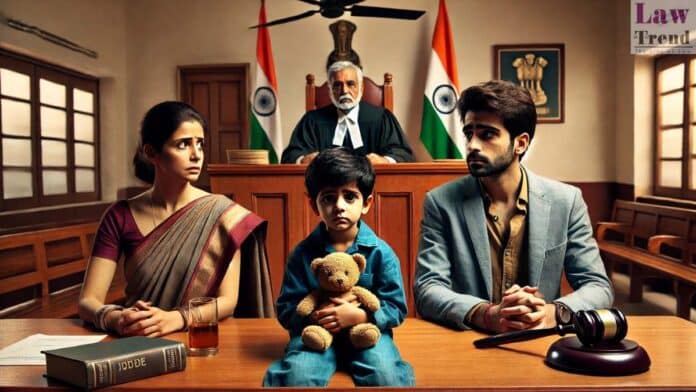In a significant legal affirmation, the Punjab and Haryana High Court has ruled that a father’s financial responsibility towards his children remains intact even if the mother earns a sufficient income. The ruling was articulated by Justice Sumeet Goel as he dismissed a revision petition from a husband challenging a family court’s directive to provide interim maintenance for his daughter.
The case surfaced when the petitioner contested his duty to financially support his daughter on grounds that her custody was with his economically well-off wife. Justice Goel emphasized that a mother’s employment does not absolve a father from his child support obligations. The court highlighted that under Section 125 of the Criminal Procedure Code (Cr.P.C.), which is designed as a means of social justice, ensuring that women and children are safeguarded against poverty and destitution is a paramount consideration.
“Section 125 Cr.P.C. serves to prevent vagrancy and destitution among women and children. It obligates a father, possessing adequate means, to uphold his moral and familial duties by maintaining his wife and children,” Justice Goel remarked during the proceedings.
The revision petition emerged in response to a family court’s order which mandated the petitioner to pay ₹7,000 monthly as interim maintenance for his minor daughter. The petitioner, whose monthly income is ₹22,000, argued that with six dependents and the child’s financially capable mother, the maintenance was unwarranted.
However, the court noted that interim maintenance is a temporary measure pending final adjudication, and is crucial to ensure that children’s immediate needs are met without delay. “The obligation of a parent to provide for their child includes ensuring a decent standard of living, which cannot be bypassed,” the court observed, underscoring that child-rearing responsibilities should be equitably shared between parents.
In conclusion, the court upheld the family court’s decision, stating that the interim maintenance order was justified and did not warrant any interference. The petition was subsequently dismissed, affirming the lower court’s decision. Advocate Rahul Garg represented the petitioner in this case.




